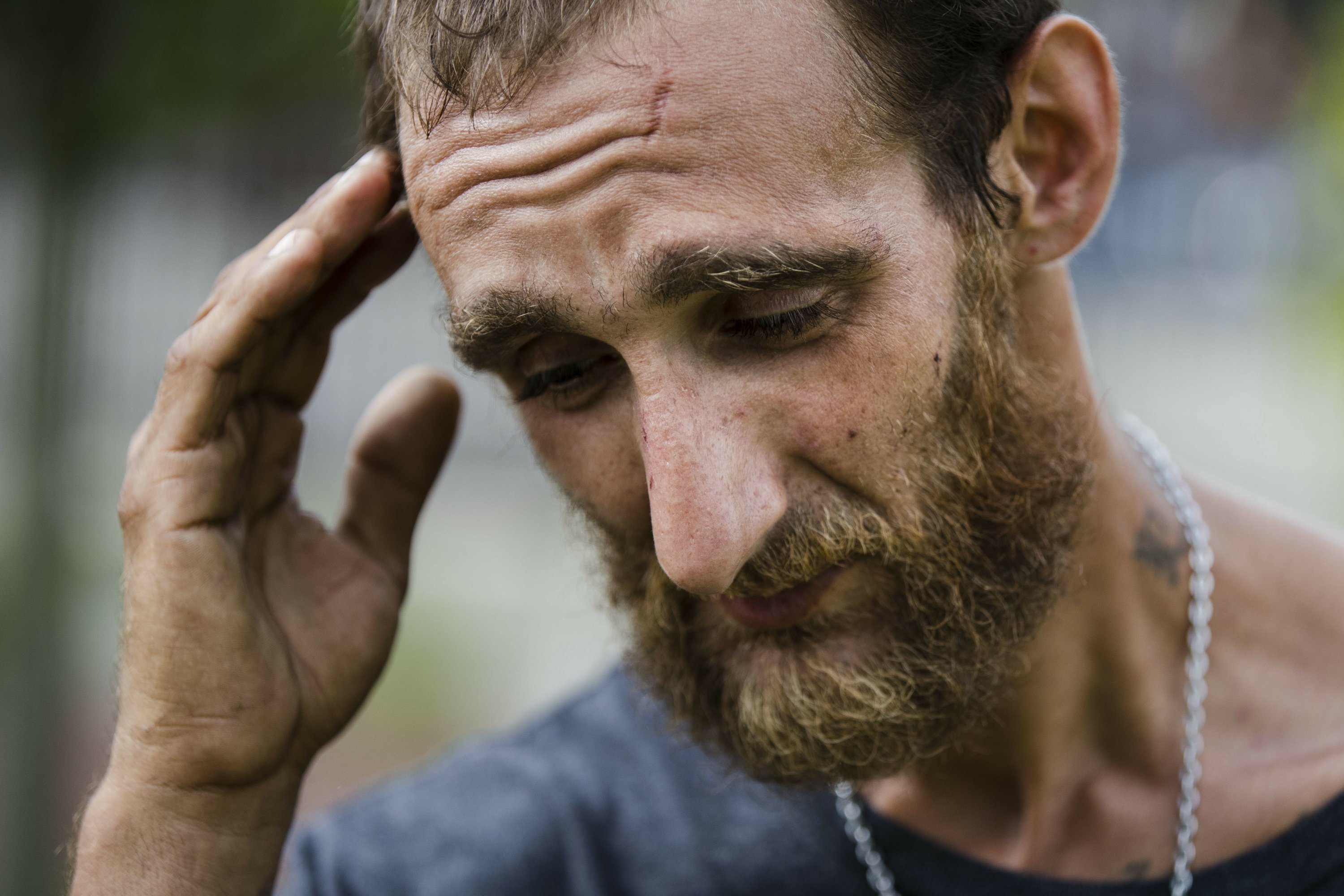
Everything I said was going to happen is going to come true. “Experts” are now openly admitting that the mental health fallout from this lockdown is going to be much worse than the damage done by the virus itself.
At Provident Behavioral Health in St. Louis, people who called the helpline at the beginning of the pandemic were fearful, even panicked.
“Nearly everyone expressed fear. Fear of catching the virus, fear of the future, fear of the unknown and fear of not knowing how to cope with their feelings,” said Jessica Vance, who manages the Disaster Distress Helpline at Provident.
Now people’s calls and texts, which have leveled off in the past couple of weeks, are more about their isolation and depression.
Nationwide, mental health call and text centers, the first lines of defense for many people feeling jittery during a crisis, offer an early picture of how Americans are coping with the coronavirus pandemic.
Many crisis centers are reporting 30% to 40% increases in the number of people seeking help. The helpline at Provident is experiencing a tenfold increase compared with this time last year, when no national disaster was occurring. So far, the nation’s most heavily used helpline, the National Suicide Prevention Lifeline, has not seen a spike in call volume.
But mental health experts predict an avalanche of mental health needs as the pandemic progresses.
Ultimately, the psychological impact of the pandemic will harm far more people than the virus itself. And the widespread emotional trauma it’s evoking will be long lasting, experts say. Already, more than 4 in 10 Americans say that stress related to the pandemic has had a negative impact on their mental health, according to an April poll by the Kaiser Family Foundation.
“There’s no doubt that the coronavirus pandemic will be the most psychologically toxic disaster in anyone’s lifetime,” said George Everly, who teaches disaster mental health and human resilience at the Johns Hopkins Bloomberg School of Public Health.
“This pandemic is a disaster of uncertainty,” he explained, “and the greater the uncertainty surrounding a disaster, the greater the psychological casualties.”
The government/media complex has purposefully ensured uncertainty by refusing to explain what the hell is even going on. When this lockdown transformed from “flatten the curve” (i.e., prevent hospitals from being overwhelmed) into whatever the hell it is now, it was never explained. There was no stated plan on what would be done next. The government just said “shelter in place and feel very afraid, because many, many people are dying.”

It’s actually incredible that we don’t have more extreme meltdowns every day.
But the suicide rate is going to explode. And probably a majority of the male population is going to turn to drugs and alcohol to deal with all of this, as there really isn’t anything else for most people to turn to.
Especially when the government has ordered all the churches closed. But conveniently left open the liquor stores.
More than 47,000 people in the United States died by suicide in 2017, making it the 10th-leading cause of death, according to the Centers for Disease Control and Prevention. The same year, 1.4 million adults attempted suicide and 10.6 million reported seriously considering suicide, according to the Substance Abuse and Mental Health Services Administration.
The suicide rate in the United States has risen 30% since 2000, with the highest prevalence among middle-aged white men. At the same time, deaths from drug overdoses and alcohol abuse have risen sharply, resulting in a decrease in American life expectancy for three consecutive years.
This rise in what are called deaths of despair, social scientists say, is caused by worsening economic conditions and social isolation in much of the nation over the past two decades.
Last week, a mental health advocacy nonprofit released an analysis predicting that the massive job losses resulting from the economic shutdown during the pandemic, compounded by increased social isolation, could lead to an even sharper increase in deaths of despair.
The coronavirus pandemic, which has killed about 79,000 Americans, could lead to another 75,000 deaths from alcohol and drug misuse and suicide, the analysis projected.
National disasters in the past have resulted in higher suicide rates in the months and years after the initial crisis. But it’s too soon to know whether this pandemic already is causing more suicides. National data on the cause of deaths is collected by the CDC from state death certificates and lags two years behind.
Firstly, we know that the 79,000 is a hoax. We don’t know what the real number is, but there is no way it’s even half of that. It is likely less than 25% of that. As Elon Musk recently noted on Joe Rogan, anyone who dies with “weakness” is recorded by the hospitals as having died of coronavirus – and we don’t understand how it is possible to die without weakness.
Of course more people are going to die from mental health problems than the virus. I mean, come on. You induce mass fear and panic, collapse the economy, take everyone’s jobs away, and at the same time lock them up in their houses – there is no more perfect way to cause mass suicide, domestic violence, drug and alcohol abuse and every other form of mental health-related problem.

It’s really like someone drew up a plan of how to cause the most severe possible psychological trauma to the population, and this flu hoax is what they came up with.
The crisis lines have shown what you would expect.
At Crisis Text Line, texters have expressed three waves of concerns since the crisis began, according to the center’s communications director, Ashley Womble.
“In the beginning it was full-on anxiety about catching the virus,” she said. In early March, the key words were “asthma” and “cough.” Later, texters started expressing fears about their loved ones catching the virus. The trending words then were “grandma” and “grandpa.”
Next came financial worries, with trending words “quarantine” and “laid off.”
Now, Womble said, “People are telling us they feel isolated, anxious and depressed because there’s nothing they can do, and they don’t know when this will end.”
Yes, that is exactly the trend we’ve all seen. People at first thought they were going to die from the virus, due to the idiotic media hysteria. Then they realized young people don’t die from the virus, and worried about grandpa and grandma. After grandpa and grandma didn’t die (or if they did they were so old that people were able to accept it relatively easily), people worried about money. Now we’re at the point where people are simply depressed and hopeless.
The next step – obviously – is substance abuse, suicide and violence.
There is no excuse for what these people in the government and media have done to our country, and there is no excuse for what they have done to our mental health. We can’t forgive any of them. They must be held responsible for what they’ve done.
The first step in holding them responsible is to get to the protests.
 Daily Stormer The Most Censored Publication in History
Daily Stormer The Most Censored Publication in History


